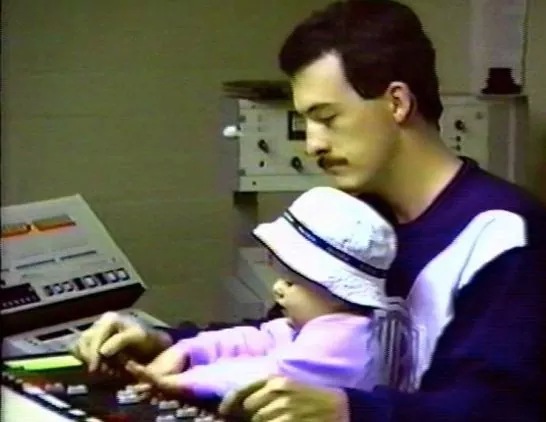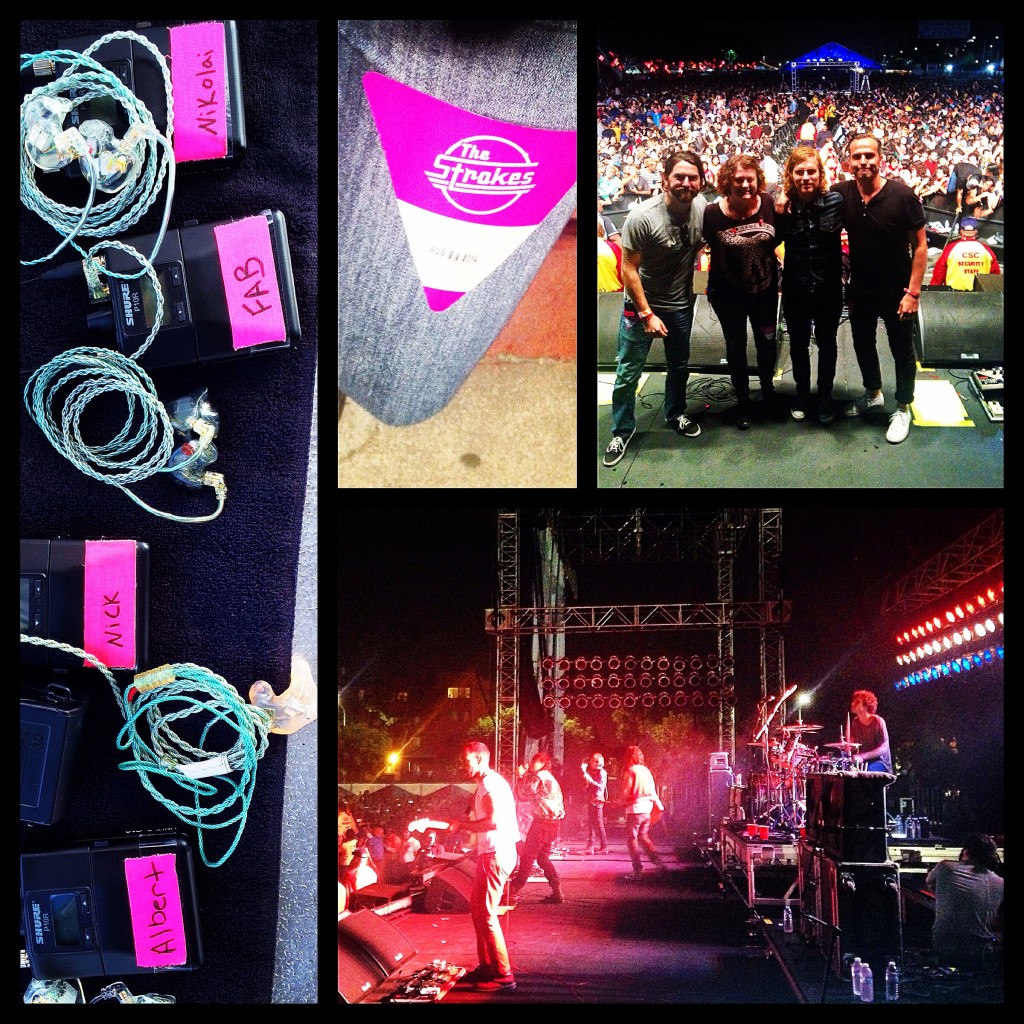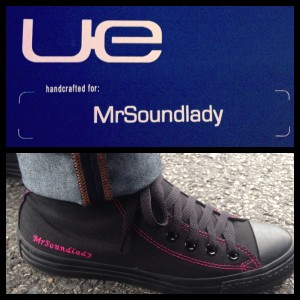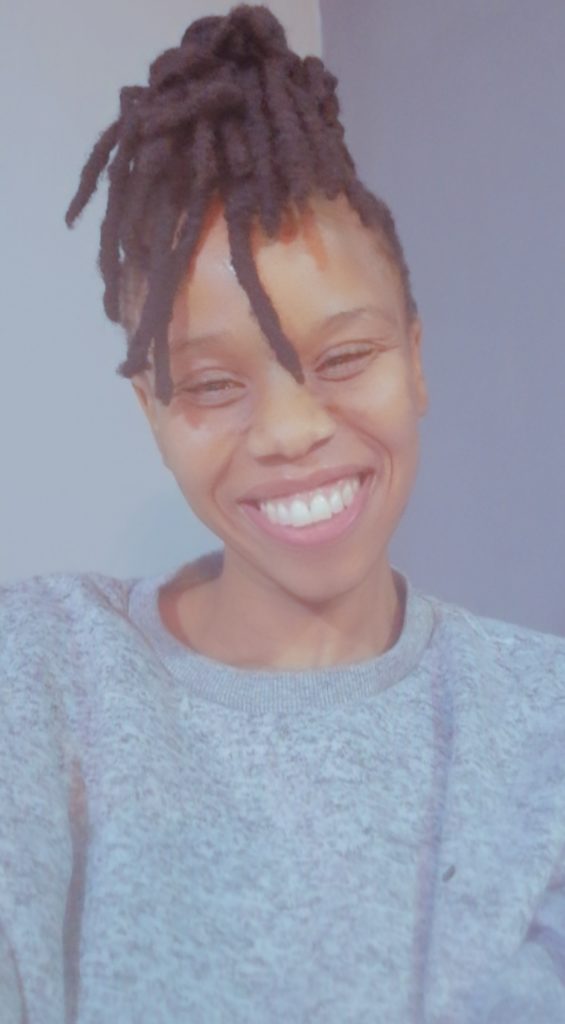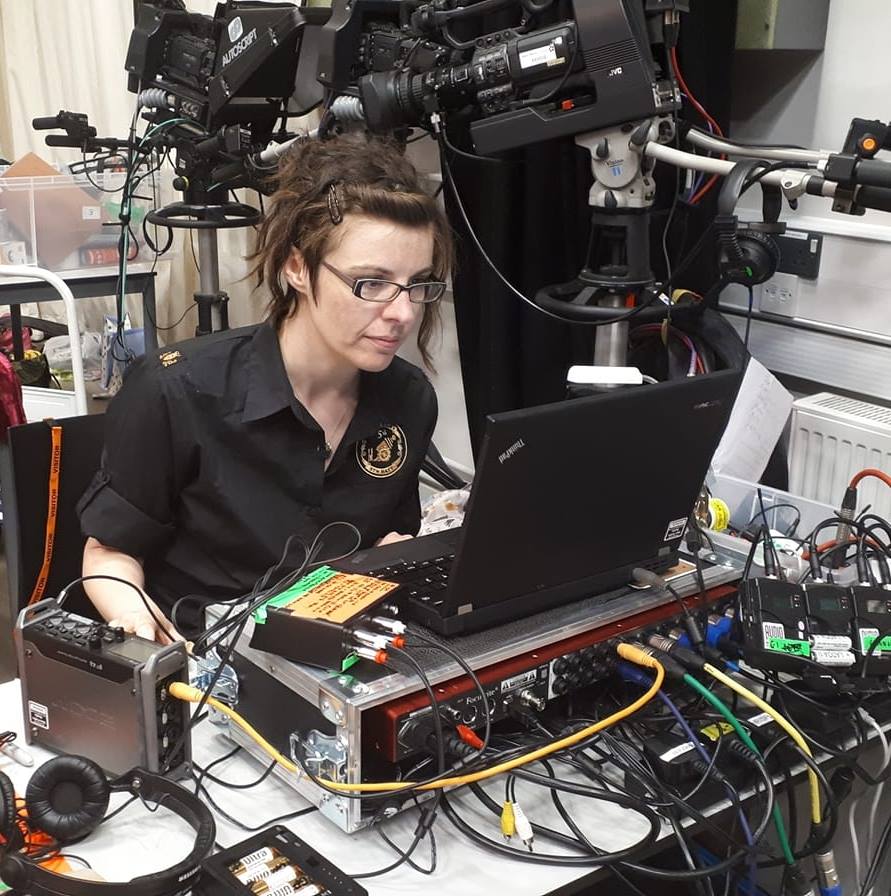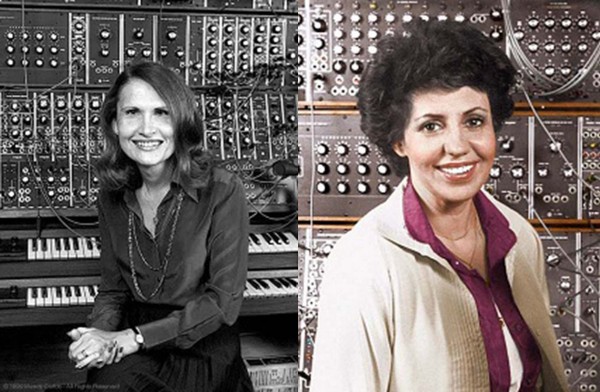Rachel Ryan has been working as an independent audio engineer for the last eleven years. She has worked as a FOH and TM for School of Seven Bells, Phosphorescent, Little Boots, Nightbox and Honeyblood. FOH for Albert Hammond JR, MNDR, Streets of Laredo, and as ME for Silversun Pickups, The Strokes, and Joe Russo’s Almost Dead. She is currently doing monitors for The Strokes and FOH for PHOX. When she is not touring she works at the Brooklyn Bowl as both a FOH and Monitor Engineer.
Rachel’s father was a music editor for film and she grew up on scoring and dub stages. She knew she wanted to work in music and audio – but not in post-production. So at the age of 16, she started interning at clubs and working on the stage crew at school. After high school, she attended NYU and received a Bachelor of Music with a specialization in technology. While at NYU she was the first and still the only woman to intern at Radio City Music Hall in the audio department. Although NYU provided a solid foundation for a career in audio, Rachel feels that she really got her audio skills and knowledge from interning at the clubs and working with different engineers on a nightly basis.
Rachel began interning at the Knitting Factory in Los Angeles while she was in high school but soon moved to NY to attend NYU. Attending college was in part to make her mother happy, as Rachel says one of their first conversations about becoming an audio engineer went like this
In New York, she landed another internship at The Knitting Factory in Manhattan. It was a summer internship that turned into a full-time job. Rachel reflects on her experiences at the Knitting Factory –
It was quite an experience. I was underage and working in a bar/venue with a bunch of people at least six years older than me, if not more and we worked our asses off. Three floors of music with three separate stages with different kinds of music every night. Long days, four-seven bands per night, per stage, and sometimes double shows. I’m pretty sure I was working five-six days a week at that point plus going to school full time. It was like being in the trenches. Looking back, I might have actually been crazy. But I learned SO MUCH from being there, it was the perfect place to learn and experiment and really get a good understanding of different boards, gear, mics, and different types of music.
I also met two other female engineers there who are still really good friends of mine. We are the Trifecta of Sound Bitches, at least that’s what everyone called us. We even have an audio schematic tattoo that represents it. I don’t know if I would have made it as far as I have without the two of them whipping me into shape as an audio engineer, as a person, and not to mention teaching me how to drink. I owe them a lot. During this time Rachel was also working at The Living Room in the Lower East Side.
After graduating from NYU, Rachel landed a gig on a cruise ship doing audio. That lasted for about a year before she landed the gig at Brooklyn Bowl and soon after began touring – which was her goal from the beginning.
Let’s talk about touring a bit
Do you find it difficult to go back and forth from FOH and Monitors?
Not really, it does take a second to switch gears though. It’s like mixing a tiny show for four or five individual people instead of a room full of people. They do require a different part of my focus but I like the challenge, it keeps me from getting too comfortable in one job. Although I must say I do prefer doing FOH.
You currently are touring as the Monitor Engineer for The Strokes – How has that been?
The Strokes – well headlining a major festival was absolutely mind-blowing! Seeing 50,000-80,000 people all shouting the lyrics to the songs of the band your working for is quite a trip. There’s nothing like it, I can’t wait to do it again. Then you have the days when you’re in production rehearsals and you’ve been in a windowless room for eight hours, day four of eight and the band decides to take a break, you come back in from getting food to discover your drummer and drum tech are having chair races down the slanted hallway. We all turn into box car drivers when presented with chairs with wheels on them and a slope.
Do the Strokes use IEMS or wedges or both? Are you touring with production?
Both. Our singer is on wedges, the rest are on IEM’s, two of them have IEM’s and wedges. We use the PSM 1000’s for the IEM’s, I really like using them. Easy to use and I’ve never had any interference problems. Using d&b M4’s for wedges and traveling with a Profile at FOH and an SC48 at Monitors.
You also tour as the FoH Engineer for PHOX – What is that like?
PHOX, oh what can I say about them… every day is just silly with them. They’ve all known each other since grade school, so there’s a lot of history there and a lot of love. They make these amazing tour/life videos of them just being them and it’s the best. They make me laugh all the time, whether it’s listening to the music we listened to in High School (making me feel old….) and singing at the top of our lungs on long drive days. We have been planning our upcoming Disneyland trip as a “band, family bonding experience”, on our day off before the tour starts. It’s what makes this not just a job but something you really care about and lot of fun. We’ve become a family. You spend so much time together and it’s great when you can really connect, not just as coworkers but musically, and as people.
For PHOX – do you carry production? or PA of the Day?
We carry all our own mic’s (Miktek mostly, which I love) and a set of really old IEM’s. But we are not traveling with consoles or a PA. Still getting bigger with each tour and getting more gear as we go along. Not that I don’t have a wish list written on my phone for when we can get more audio gear!
You have toured managed and done FOH for several bands – How do you juggle it?
It’s hard, really, really hard actually. I started tour managing because I wanted to tour and in order to get to tour and do sound, bands wanted the job to be done by one person. Small budgets, bands just starting out, etc. and I really wanted to get my foot in the door so I thought why not, let’s do it. As I go along though, I’ve started phasing out TM’ing and started to try and take gigs that let me just do audio. I feel like when TM/FOH is done by one person, one job or the other suffers. Your focus is split between wanting to mix your show well or answering all the emails/phone calls/scheduling promo/cat herding that needs to be done. Really it comes down to time, and just not having enough of it or not being able to be in two places at once. They are both full-time jobs and it can get exhausting trying to figure out how to balance getting both done well and not letting things slip through the cracks. It’s a job that should not be taken lightly.
What do you love about touring?
Honestly, almost everything. Yeah it can get hectic at times or things go wrong that are out of your control or you just have a shit day but at the end of the day I could be flipping burgers for a living. I consider myself really lucky to have made something I enjoy doing into a career. If you’re lucky enough to find a crew or a band you really get along with, well, there’s nothing better than that. You’re getting paid to travel the world and do what you love with people you really like, who really love what they’re doing. It’s magic. I love being able to travel and see lots of different places. You meet so many new people too. Other bands, house crews, touring crews, random people, you get to see again all around the world as they travel too. It’s truly the best.
What do you like least?
The lack of sleep probably and sometimes the lack of personal space. You are constantly around people, in your band, crew, or what have you, that you can go a little crazy if you don’t set aside some time to just be alone and decompress.
What’s your perfect day off?
Sleeping in and doing absolutely nothing or finding the closest Museum or Movie Theatre. Just to get a break from going to venue after venue and you get to experience something new in a different city.
What are your long-term goals?
I really want to phase out of TM’ing and focus solely on mixing FOH on the road. To be touring enough that I don’t need a house gig when I’m home. I want to be doing this for as long as I can or till I’ve had enough of life on the road. Then who knows? I feel like I will always be doing something audio-related, it’s in my blood.
What if any obstacles or barriers have you faced?
Well, the obvious answer is being a woman. Starting out I really had to fight to be taken seriously. To work harder and longer just to get the time of day. There was no room for error. Walking up to bands when I was the house engineer and then them saying “so where’s the sound guy?” and my response is “that would be me”. Most of the time they were just surprised, not intending to be an ass by their question, it just had never even occurred to them that there would be a female FOH. Even being on tour, when I started out TMing and doing FOH and walking into clubs and people asking if I was the merch girl, or are you lost and having to say, “no actually I’m in charge”. Most people don’t care, it’s only about you can either do your job or you can’t, period and that’s all that matters. There are still a few out there every now and again, who just seem to want to make it as hard for you as possible because you’re female. Regardless of how good you might be at your job. The longer I do this, the less I take it personally when it does happen, you can’t or it’ll drive you crazy. All you can do is be the absolute fucking best at what you do and not let the little minds of stupid people get to you. It can really wear on your self-confidence if you do, and no one’s perfect, sometimes it does get to you. That is something I have struggled with over the years but you learn to deal with it over time and it doesn’t matter so much anymore. When I started out I was lucky enough to work with two other female engineers who took me under their wings and were total badasses. Still are and it made all the difference in the world. Not to mention a slew of really amazing engineers who were just as happy to geek out about audio as I was.
Advice you have for other women and young women who wish to enter the field?
You really have to love what you do and stick with it. If it’s not a passion, it’s going to be a really tough thing to want keep doing day after day. Be curious, ask questions, learn as much as you can and remember to have fun.
Also, dress for the job. You know that a certain aspect of this job is going to be physical labor There is a time a place to dress up and be cute. When you’re working don’t show up to load in in flip flops or a short skirt. Not only do you run the risk of injuring yourself but your other team members as well.
Must have skills?
Patience, a whole lot of patience. Knowing how to communicate to your artist about their needs and how to make them happy is key. You’re the engineer and they are the musician. They may not always know how to tell you what they’re hearing or how to change it if need be. Today it’s too yellow, tomorrow it’s too hairy. Those are clearly not helpful descriptive terms but they are real to your artist, so knowing how to get them to describe to you what they need or just being able to interpret what, “being yellow” means is half the job. Knowing that you’re paying attention and being able to say “ok too yellow? Let’s fix that” even if you have no idea what that means, makes them feel like they are being listened to and taken care of.
Favorite gear?
Miktek mic’s, pink gaff tape, Avid, Pelican anything and everything and my (you guessed it pink….) UE IEM”s.
MrSoundlady is not only Rachel’s email handle but her nickname. It started as a joke when she was working at the Knitting Factory in Manhattan, and it just sorta stuck. Rachel uses it for everything now. Rachel says its cool go from place to place and even if people don’t always remember her name they always remember MrSoundlady.

